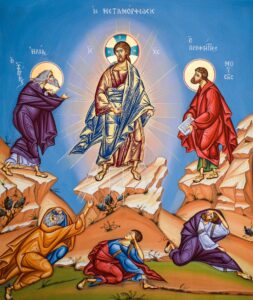FOMO. Have you heard of it? It’s an acronym for “fear of missing out”. According to Wikipedia, FOMO is “the feeling of apprehension that one is either not in the know or missing out on information, events, experiences, or life decisions that could make one’s life better.
The term was coined in 1996, but the idea has been around much longer than that. Anyone who has ever tried to get a toddler to bed can relate. Behind the pleas for one last good night kiss, or one last glass of water is a fear of missing out on something important.
A lot of advertising cashes in on FOMO. It makes us aware of what we don’t have and creates a perceived need. I might be content with the gadget that I have until you show me the next one. Easy access to the internet through portable devices has deepened our sense of FOMO. Young “influencers” can create a perceived need in nanoseconds. FOMO feeds our consumer economy.
A Different Kind of FOMO
But my focus here isn’t on consumer FOMO, though I am not immune. My iPhone isn’t the newest model, but I have had to talk myself out of upgrading more than once. And I don’t let myself surf through Amazon after 9:00 in the evening. By then, my impulse control is gone, and I don’t want to spend the next week sending things back.
My focus today is on spiritual FOMO. And I think I should be determined not to miss out on the good things God has for me.
Moses and FOMO
The story of Moses is sobering for me. Moses was used by God to bring about dozens of miracles. And scripture tells us that he spoke to God face to face like no one else in the Old Testament. He had led a million people out of slavery and through the Red Sea. God gave Moses the Torah and the pattern for the Tabernacle and allowed Moses to see His glory. Moses, along with the whole nation, had been sustained for 40 years in the wilderness where there was no natural food. Moses knew God intimately. 
But he did not receive all that God had for him. There came a day when God told Moses, “You have led these people 40 years. You have gotten them to the brink of Canaan. But you will not complete the journey. Joshua will take over from here.” It had to be a crushing blow.
They had been here before, ready to enter Canaan. But their fear had overcome their faith, and Moses had watched in disappointment as God led them back into the Sinai desert to wander until the last one of the doubters had died.
Complaints and Frustration
The last of the doubters had died. But the people still knew how to grumble. And grumble they did. The new generation realized that there was no water nearby. And they decided it had to be Moses’ and Aaron’s fault. So they angrily approached their leaders, complaining loudly and vehemently.
Moses did the right thing at first. He took the matter straight to God. And God answered. “Take the staff; and you and your brother Aaron assemble the congregation and speak to the rock before their eyes, that it shall yield up its water. So you shall bring water for them out of the rock, and have the congregation and their livestock drink.” (Numbers 20:6)
So, Moses and Aaron retrieved the staff just like God told them. They gathered the congregation, again, just like God told them. But then Moses got angry. And he went off script. “And he said to them, ‘Listen now you rebels; shall we bring water for you out of this rock? Then Moses raised his hand and struck the rock twice with his staff, and water came out abundantly, and the congregation and their livestock drank. (Numbers 20:10-11)
I understand why he was angry. He had spent 40 years babysitting these grumblers, and he was tired and frustrated, ready for them to take responsibility for themselves. But his anger led to disobedience. And his disobedience cost him everything.
Serious Consequences
“But the Lord said to Moses and Aaron, ‘Since you did not trust in Me to treat Me as holy in the sight of the sons of Israel, for that reason you shall not bring this assembly into the land which I have given them.” (vs 12) Moses’ disobedience showed a lack of trust and respect for God.
In the end, God takes Moses to a high mountain and shows him all the land of Canaan. Moses gets to see everything he is missing out on. It was a bittersweet moment. He could see that Canaan  was just as God had described it. And that God was fulfilling the promises He had made to Abraham hundreds of years before. But someone else would lead the army to take the land. And he died there, just short of his goal.
was just as God had described it. And that God was fulfilling the promises He had made to Abraham hundreds of years before. But someone else would lead the army to take the land. And he died there, just short of his goal.
What does it mean to trust in God to treat Him as holy? For Moses, it meant following God’s instructions to the letter, with no embellishments. It meant submitting his anger and frustration to God and allowing God to be both provider and judge. It meant showing self-control in a tense situation.
A prophet’s instructions and a missed chance
II Kings 13 tells another story about someone who missed out on God’s abundance. When Elisha was on his deathbed, Joash, who was king of Israel at that time, went to see him. As prophets often do, Elisha gave Joash some strange instructions. First, he was to shoot an arrow out an open window. This symbolized victory over the king’s greatest enemy. Then Elisha told Joash to take a quiver full of arrows and strike them against the ground. Joash obeys but without a lot of enthusiasm. He strikes the ground 3 times and stops. Elisha reprimands him for stopping. If he had struck the ground repeatedly, he would have had total victory over his enemies, but since he stopped, he would only have a partial victory. He didn’t fully obey.
Hide it or use it?
Jesus told a parable about 3 servants. They were each given money to keep by their master. Two of them brought back more than they had been given. One went out and buried his money in the ground and when the master returned, he brought it back in exactly the same form as it had been given. The two who used what they were given to make even more were given more. The other one had his little bit taken away.
Greater Things?
On His last night with His disciples, Jesus told them that if they would ask anything in His name, they would receive it (John 16:25). And He also told them they would do greater things than He did when the Holy Spirit came. This promise applies to us as well. But I don’t often aspire to doing greater things than Jesus did when He was here.
James expanded on this idea when he said in James 4:2b-3, “You do not have because you do not ask. You ask and do not receive, because you ask with the wrong motives, so that you may spend what you request on your pleasures.” God wants us to ask Him for great things, not for selfish reasons, but to show Jesus’ love to those around us. I’m learning to ask for the “greater things”.
Spiritual FOMO
I won’t live forever here on Earth. One day I will stand before God without fear. Jesus already took all the punishment for my sins, and I will never have to answer for them. But I will have to answer for what I have done with the gifts God has given me. I wonder if it will be anything like Moses’ experience on Mount Pisgah. I wonder if God will show me the spiritual territory that could have been mine if I had trusted Him more?
Redeeming FOMO
By the way, God is a God of redemption. And He has a way of allowing do-overs even when we really miss the boat. Moses died on Mount Pisgah. And he missed out on leading his people into the Promised Land. But, he did get to enter Canaan a few centuries later. 
When Jesus was nearing the end of His earthly ministry, He took a few of His disciples on a side trip with Him. He let them see Him in His Heavenly form. Two people appeared with Him. One was the prophet Elijah. And one was Moses. The one who missed out on so much did get to visit at least a little part of the Land he had longed to see.
I find comfort here. The Father knows my deepest desires and my deepest fears. And He will redeem what I need Him to redeem. FOMO isn’t the end.
But I still have spiritual FOMO. I want whatever God has for me, both here and in eternity.
All scripture references from NASB 2020. Zondervan Press.




New perspective, great article!! Thank you Lisa Crowe for leaping outside of the box and going deep.
Great article. Makes me think twice about why I want stuff or experiences that others have. It makes me ask if this will grow my relationship with God?
A wonderful article Lisa!
Blessings,
Michael